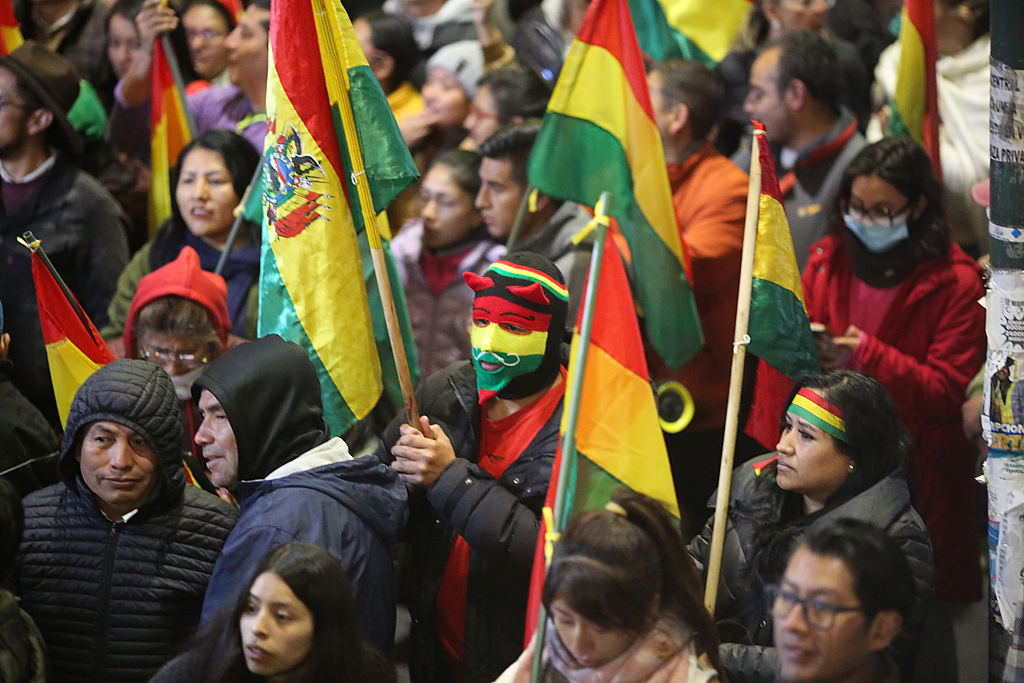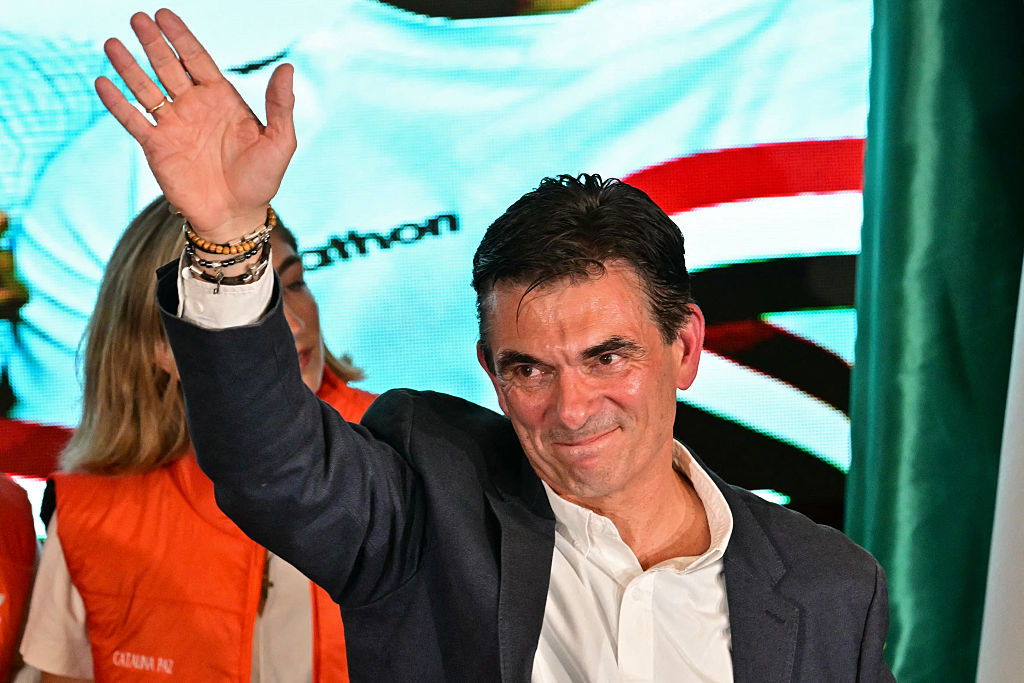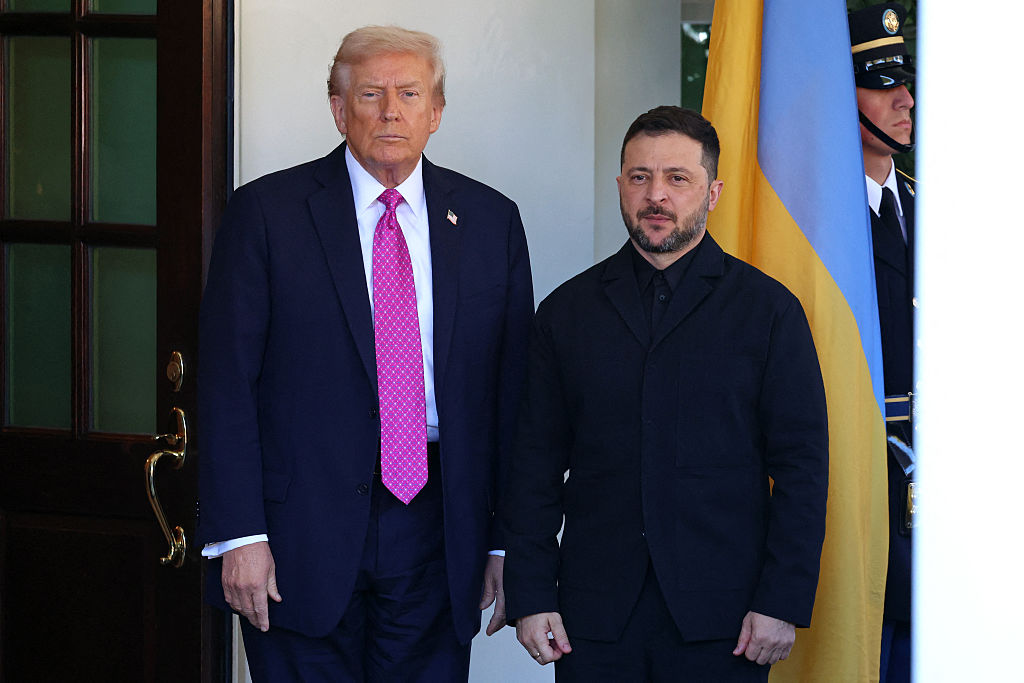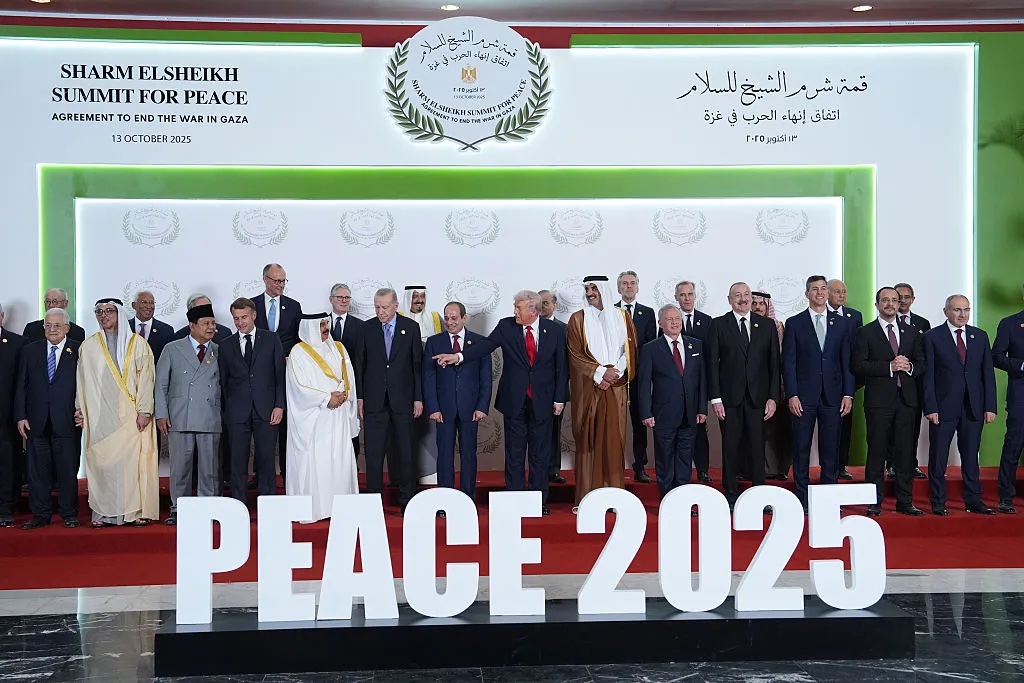After nearly two decades of reign over Bolivia, the Movement Toward Socialism (MAS) party was banished at the ballot box on August 17. Its fall is a dramatic political realignment to the right for Bolivians, and a rare opportunity for the United States to reform relations with a geopolitically critical nation. As one expert, Leonardo Coutinho, told us, “The Trump administration can not only contribute to the restoration of democracy but also play a central role in dismantling a fully functioning narco-state.”
Despite its 25 percent inflation rate and a 93 percent debt-to-GDP ratio, Bolivia is rich in natural resources, boasting some of the world’s largest lithium reserves, making it an attractive target for both American and Chinese grand strategies. Until now, the incumbent socialists aligned Bolivia with the anti-US alliance of China and Venezuela and created a lawless environment for cartels and criminal gangs to prosper. President Trump can reverse this to secure US supply chains and wound anti-American influence in a heavily contested theater.
Mining developments have stalled under MAS mismanagement and red tape. Backed by Beijing and its broader strategy to dominate technology-critical supply chains, Chinese firms greased the palms of MAS legislators to secure privileged access to more than a billion dollars’ worth of lithium. Regulations restrict American investors, forcing them to form joint ventures with state-owned firms, strangling American-capital inflows. Hypercentralized China, meanwhile, with its ability to deploy large sums of capital with little regard to short-term costs, has constantly secured billionaire investments. Competition for mining bids long shaped Bolivia’s political system, encouraging mass corruption in a nation reliant on mining for income. This has empowered China and stalled US growth.
Bolivia’s ousted socialist government had also long extended its hand to Nicolás Maduro’s Venezuela. Worse yet, Venezuelan criminal elements have infiltrated Bolivia’s weak borders, turning it into a transit center for illicit activity, which has empowered the presence of Tren de Aragua, the Venezuelan gang that the US Department of State rightly designated a foreign terrorist organization this year. Evo Morales and Luis Arce also transformed Bolivia into a hub of cocaine production by enacting laws that expanded coca cultivation. The resulting drug trade has not only fueled smuggling into the United States but has also undermined stability in Brazil, Argentina, and across the continent at large.
America First Policy Institute’s Melissa Ford Maldonado, who served as an electoral observer during the Bolivian election, told The Spectator that “This moment is not unique to Bolivia, but a part of a larger shift across our hemisphere.” She went on: “From Argentina to Ecuador, and now Bolivia, with elections ahead in Chile, Honduras, Costa Rica, Colombia, Brazil and beyond, people are turning away from the false promises of socialism and authoritarianism, and demanding real sovereignty, accountability, and change. The fight for democracy in the Americas may not be easy, but it is winnable, and it’s already happening.”
Leonardo Coutinho, the executive director of the western hemisphere-focused Center for a Secure Free Society adds that the US has the unique opportunity “to support Bolivia in a process of institutional reconstruction that frees it both from the ideological legacy of Bolivarianism and from the capture exercised by narcotrafficking across different dimensions of national life, ranging from the illicit economy to the presidency itself.” Coutinho warned, however, that the MAS leader Evo Morales “remains a relevant political force.”
To seize this opportunity, Trump must prepare a trade deal with Bolivia. In such a deal, Trump can leverage a current 15 percent reciprocal tariff, American development financing and access to the US market in exchange for US firms being allowed to acquire and operate mines in Bolivia.
Both viable MAS alternatives – Quiroga and Paz Pereira – appear open to this path. The task for Trump is simply to extend his hand while exerting the pressure needed to make it real. Coupled with this effort, the Trump administration can encourage renewed investigations into China’s lithium deals – leveraging the Bolivian case in its wider competition with the most formidable competitor the US has had in history.
The US’s diplomatic offensive, for which we still need a Senate-approved ambassador, should also push for renewed security partnerships to fight transnational terrorist organizations. Here, Trump can enlist the support of Argentine president Javier Milei, also the president of a once-leftist country leading a US realignment.
Such an approach would strengthen US credibility across South America and anchor Bolivia within a broader network of partners – providing a much-needed counterweight to the region’s socialist bloc.
Trump has the chance to pull Bolivia back into America’s orbit and set the stage for shared prosperity. With decisive action, he can lock down lithium supply chains, break the grip of cartels and open a new chapter for the region – one in which the US proves it can lead not only by putting itself first, but also by lifting its neighborhood with it.


























Leave a Reply